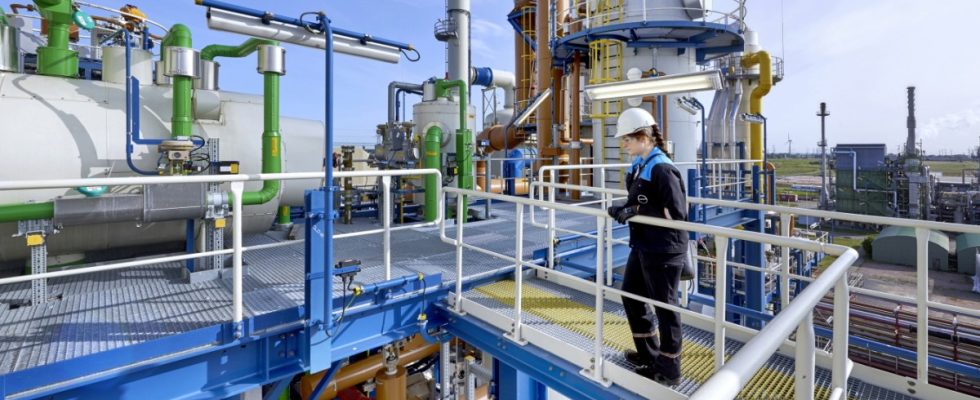Foams for car seats or resins for wind turbine rotor blades – the Leverkusen-based plastics manufacturer Covestro makes its money with such different products. The shares of the group, which was spun off from Bayer in 2015, have been listed on the Dax stock market index for five and a half years. But in the future the company with its 18,000 employees could belong to an Arab oil and gas company: Covestro announced at the weekendto begin “open-ended discussions” with the Abu Dhabi National Oil Company (Adnoc) about a sale.
The state-owned company from the United Arab Emirates expressed interest in Covestro in early summer, but no official discussions have taken place so far. But after a supervisory board meeting on Friday, Covestro confirmed for the first time that the Abu Dhabi company was seeking a takeover – and that negotiations were now underway. Important investors such as Arne Rautenberg, fund manager at Union Investment, had recently demanded that the Covestro management should no longer turn a blind eye to formal negotiations.
Covestro’s statement cautiously states that it is “open and will depend on the course of the upcoming talks as to whether, in what form and, if necessary, under what conditions an agreement will be reached between the discussion partners.” According to reports, Adnoc’s boss Sultan Ahmed Al Jaber, who is also the Emirates’ industry minister, is offering 60 euros per share, which would value the group at 11.5 billion euros.
On Friday the share closed at 51.50 euros; it had risen eight percent that day because of – accurate – rumors of an impending announcement. In this, CEO Markus Steilemann explains that the interest in our company “underlines our strong position as one of the world’s leading manufacturers of high-quality plastics.” Steilemann is also President of the Association of the Chemical Industry (VCI) and regularly criticizes what he believes to be the federal government’s too hesitant economic policy. He is vehemently calling for a subsidized industrial electricity price.
The Emirates want to become more independent from oil
Like other chemical companies, Covestro is suffering from the weak economy and high energy prices. Steilemann therefore cut investments; the share price fell from 57 euros before the outbreak of the Ukraine war to 39 euros last June. Since then, the takeover speculation has caused the price to rise again.
The industry crisis is making acquisitions cheaper for Adnoc. The Arabs already offered eight billion dollars for the largest Latin American petrochemical company Braskem from Brazil in May. Last year, Adnoc acquired a quarter of the shares in the Austrian oil and gas company OMV. The state-owned company is currently negotiating with OMV about merging the chemical divisions of both partners. With such investments, Adnoc would like to make itself more independent from oil and gas production. It makes sense to enter the chemical industry because this industry processes oil and gas – the Arabs then control other links in the value chain.
In a few years, however, chemical companies like Covestro will process climate-friendly – so-called green – hydrogen instead of natural gas. Saying goodbye to natural gas is necessary to achieve Europe’s ambitious climate protection goals. This also fits with Adnoc’s strategy, because the Emirates and thus the state-owned company want to become an important provider of green hydrogen. It requires a lot of green electricity to produce it, and there is certainly no shortage of sun in Adnoc’s homeland.
A German is looking for companies
The state-owned company has hired a 50-person team of takeover specialists to find and buy interesting companies. It is managed by the German Klaus Fröhlich, who worked for a long time at the US bank Morgan Stanley. Covestro will certainly not be the last company to be targeted by the Arabs.

